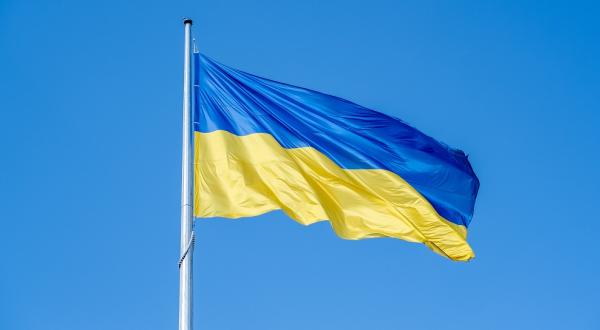RSU Lecturer Concludes Intensive Latvian Language Course for Ukrainian Refugees
On Sunday, 10 April, the Rīga Stradiņš University (RSU) Student House in the Riga Old Town hosted a social event to mark the conclusion of a week-long intensive Latvian language course for Ukrainians who were forced to leave their homeland due to the war. More than twenty Ukrainians and RSU faculty members, staff and students played games in Latvian, drank tea, ate sweets, and discussed current events.
The seven-day intensive language course was organised by Una Bērziņa-Čerenkova, a lecturer at RSU, together with her friend Anna Sedova, a lecturer at the Riga Technical University (RTU).
This was initially a personal initiative that received wide support from the RSU Student Council, for example, which offered premises and whose representatives attended the event.
During the game, participants from Latvia asked the Ukrainians questions about their personality, workplace, interests, and received an answer in Latvian. Una says that the interest in the course was high, with more than thirty participants. They found out about the course via the websites Gribu palīdzēt bēgļiem (I Want to Help Refugees - Ed.) and Ukraiņi Rīgā (Ukrainians in Riga). In fact, all places were filled within the first four hours and it was unfortunately not possible to accommodate everyone who expressed interest.


Ukrainians are particularly interested in intensive courses that take place every day as they want to learn the basics of the language as quickly as possible so that they can begin to use the language in their daily lives.
The intensive courses took place for three hours each day and gave the participants the opportunity to remember what they had learned the previous day while it was still fresh in their minds and, of course, to make new friends.
Initially, the organisers were concerned about how the participants would pick up the grammar, but with the help of a pre-developed intensive course methodology, it was a success. Bērziņa-Čerenkova is pleased that the participants were active and not afraid to speak up or get involved.
Some people find it easier to read while others understand the logic of a language, but lack the vocabulary. So almost everyone needs a semi-individual approach.
Marianna, who already speaks Latvian relatively well, was one of the participants. She wants to study at the RSU Faculty of Medicine in Latvian and dreams of becoming a cardiac surgeon. Her mother Natalia also participated. She has recently arrived to Riga and this was her first Latvian language course. Marianna also has a younger sister, Ieva. When asked why she chose such a Latvian name while living in Ukraine, Natalia says that she once saw a TV programme with a very nice and clever character called Ieva, and that was the reason for this choice.

Marianna (on the left) un Natalia
Overall, the language course achieved at least three objectives: participants learnt the basics of the language, met and made friends with Latvian people, and learned more about Latvia and Riga.




